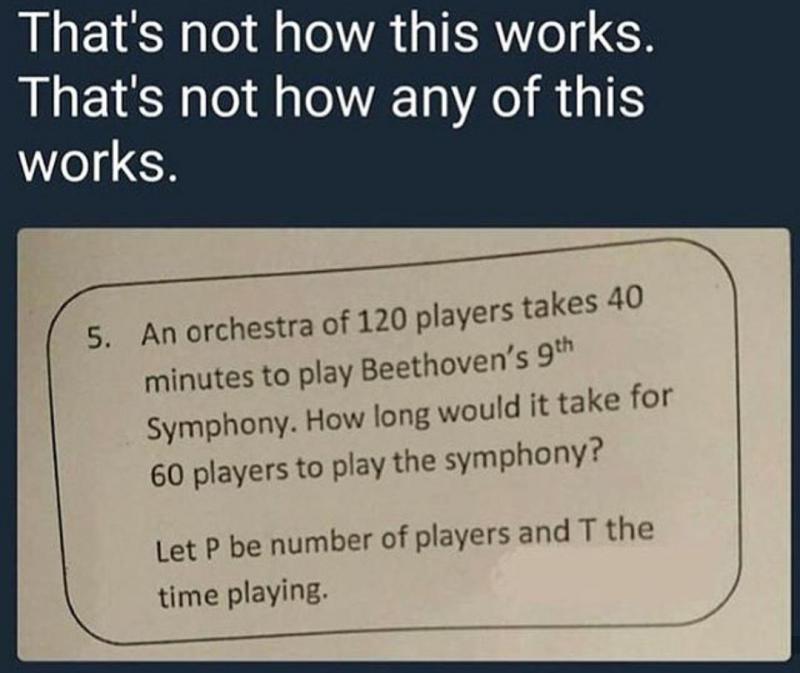Ranter
Join devRant
Do all the things like
++ or -- rants, post your own rants, comment on others' rants and build your customized dev avatar
Sign Up
Pipeless API

From the creators of devRant, Pipeless lets you power real-time personalized recommendations and activity feeds using a simple API
Learn More
Comments
-
I am not a criminal.
Or
It is not true that I am a criminal.
Which one is better?
a) sounds more natural and innocent
b) most people think he is an criminal, but he claims that is not true
So depends on your scenario
Takes Justin Birber as an example:
a) JB: I am not a developer
(This is obvious so just say it directly)
b) JB: It is not true that I am a gay.
(Well.... suspicious... then he has to stand against the public opinion) -
My approach:
#define false true
for (size_t i = 0; i <= 666; i++)
{
if (!( i % 666 == 0 && var_1 == var_2))
{
// Code
}
}
Just let it iterate through a loop first for no reason -
 niconj3759yIf anyone says "b" I challenge him/her to a duel with pistols at dawn
niconj3759yIf anyone says "b" I challenge him/her to a duel with pistols at dawn
That kind of people should not be allowed to code -
int valueOfVar1 = var1;
int valueOfVar2 = var2;
if (valueOfVar1 != valueOfVar2 ) {
if (var1 != var2) {
if ( (valueOfVar1 != var2) && (var1 != valueOfVar2) {
// Insert your code
}
}
} -
 LMagnus20299ya. With b you have to evaluate the condition twice. It's also takes extra milliseconds to read.
LMagnus20299ya. With b you have to evaluate the condition twice. It's also takes extra milliseconds to read. -
@inukinator from what I remember it either switches true and false of makes every true false XD
-
@inukinator alright I checked and #define false true redefines false statements to true ones
Related Rants

 Boolean Logic....
Boolean Logic.... Project manager logic.
Project manager logic.
What do you prefer?
a) if (var1 != var2)
or
b) if (!(var1 == var2))
undefined
condition
equality
logic